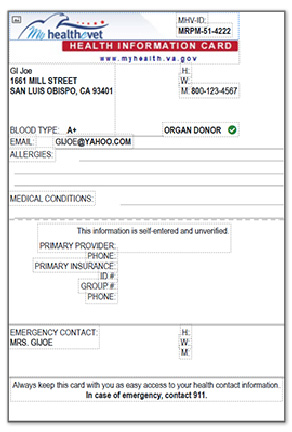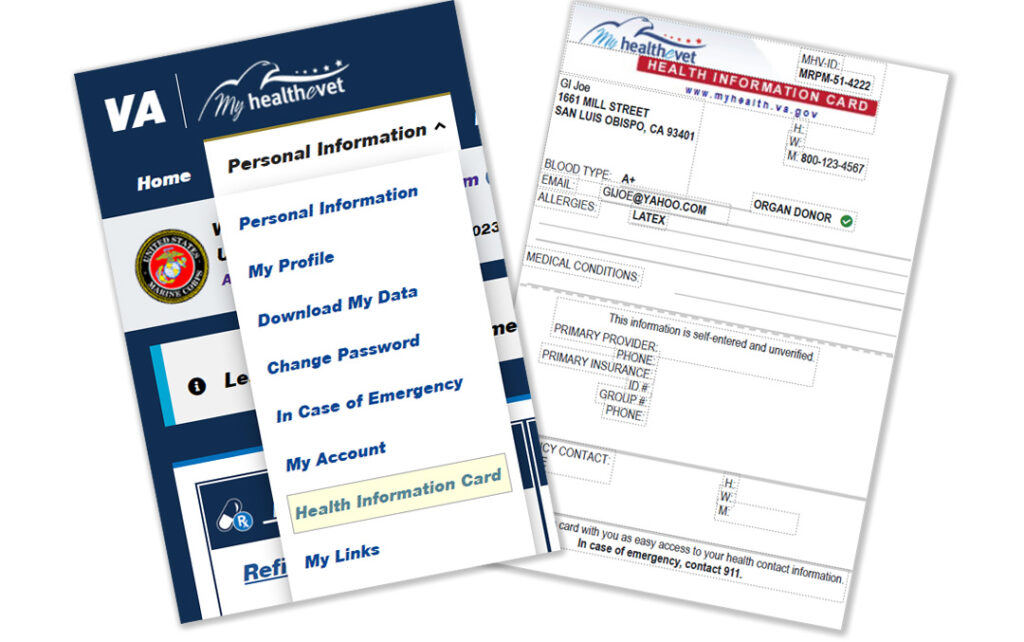

In recent years more veterans are receiving medical care from doctors (private practice) in their local community. The Veterans Community Care program allows eligible veterans to get medical care through in-network providers that are not a part of the Veterans Affairs Medical Center (VAMC).
I have been using the VA Community Care program recently since I live over three hours away from the nearest VA Hospital and I recently have developed medical issues my local VA clinic just cannot handle. The Community Care Program has been very helpful and has allowed me to get appropriate care through the VA without having to drive for hours to reach a VA medical facility.
One interesting aspect of being seen as a VA patient by a private practice doctor is being asked during check-in by the receptionist for my VA ID card. I never had a VA ID card and it often confuses the staff at the private practice office that I did not have one. Apparently, getting the patient’s insurance card is an important part of the office staff’s job. There are many types of identification cards you can use to show you’re a Veteran. The Health Information Card is what I now use when I’m asked for my VA insurance card. (Click on the graphic on the right to see a larger version of the VA Health Ifnormation Card.). You can find and download your personal Health Information Card in Personal Information drop-down menu of your MyHealtheVet.va.gov account.
We are providing additional information about the VA MyHealtheVet and the Community Care Network for those who may not be familiar with these important VA programs.
MyHealtheVet offers tips and tools to help you partner with your VA health care team. Here you may find useful resources when you need them. The support tools on this page are designed to enrich your experience with VA Healthcare and help you make informed decisions.
The My HealtheVet webpage is something I use frequently. These are the features I use most often;
Pharmacy – Allows me keep track of the:
- Medications I am taking (More than I want!)
- Dosing and frequency, and
- Allows me to order needed medications that are then shippedd to my home.
On occassion I’ve had to call the VA pharmacy staff to deal with a problem I’ve encountered with a medication order. The pharmacy staff have always been professional and very helpful.
Appointments – The appointment process with VA can be confusing. Being able to keep trak of my VA appointments in MyHealtheVet is a nice feature. I just wish they would tell you what the appointment is for.
Secure Messaging – This is a good idea. Secure Messaging is for non-urgent communication with your VA health care team or administrative staff. Often I get a response to my emails sent within the secure messaging within one day.
MyHealtheVet is a good feature for Veterans to communicate with their VA medical team. If you you do not have a MyHealtheVet account, creating one might be a good idea. Use this link to Sign-In or Register
Community Care Network webpage
President Trump championed significant health care reform. The VA Mission Act, important event in VA health care reform, was signed into law in June 2018. This reform improved access to medical care in their local community while ensuring that VA quality standards are met for veterans where facilities are not readily available, due to distance or appointment demand.
The VA Community Care Network (CCN) is VA’s direct link with community providers nation wide to ensure Veterans receive timely, high-quality care. CCN uses industry-standard approaches and guidelines to administer services, pay for services promptly, and manage the network to its full potential. The Community Care service administrator for Californnia veterans is Tri West Healthcare Alliance.
A consult is a request from a VA provider that refers a Veteran for specialty and/or behavioral care.
VA then contacts the Veteran. If the Veteran is deemd to be community care eligible and opt-in to receive community care, the referral is prepared for sheduling with an in-network community provider.
After the referral has been reviewed and the modality confirmed, the Veteran may proceed to self-schedule their appointment for them.
If the Veteran decides to self-schedule, they are either given the contact information of the applicable providers near them in the community network or can use https://www.va.gov/find-locations to find acceptable providers.
The Veteran is asked to inform VA of the details of the appointment within 14 days to add to the Vetran’s chart. This allows VA staff to help coordinate care when needed or requested by the Veteran.
After the appointment is scheduled, an authorization is created.
Authorizations are approvals from VA for Veterans to receive care from a community provider.
Veterans receive a letter with:
- An authorization number
- The aaproved in-network community provider info.
- A description of the authorized care
- The time period the Veteran is authorized to receive care.
At the scheduled day and time, Veterans attend their community care appointment.
VA will have already sent relevant medical records to the community provider.
However, if instructed by the commuity provider, the Veteran may be asked to bring copies of diagnostic imaging (CT or MRI) with them.
Patient Advocate
The Patient Advocacy Program is for all veterans and their families who receive care at VA health care facilities. We want to be sure you have someone to go to with your concerns in a timely manner and to help you receive care.
If you need help getting care or getting your problems resolved, talk to the Patient Advocate at your VA medical center. We want to provide you with world-class Veteran customer service and this is just one important way in which we do that!
